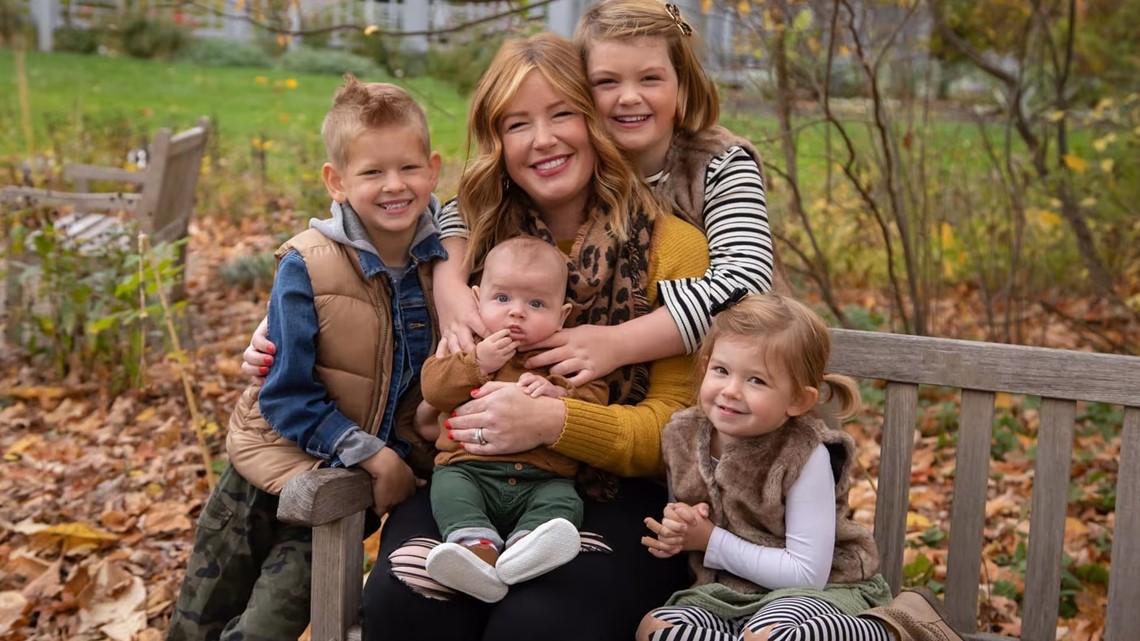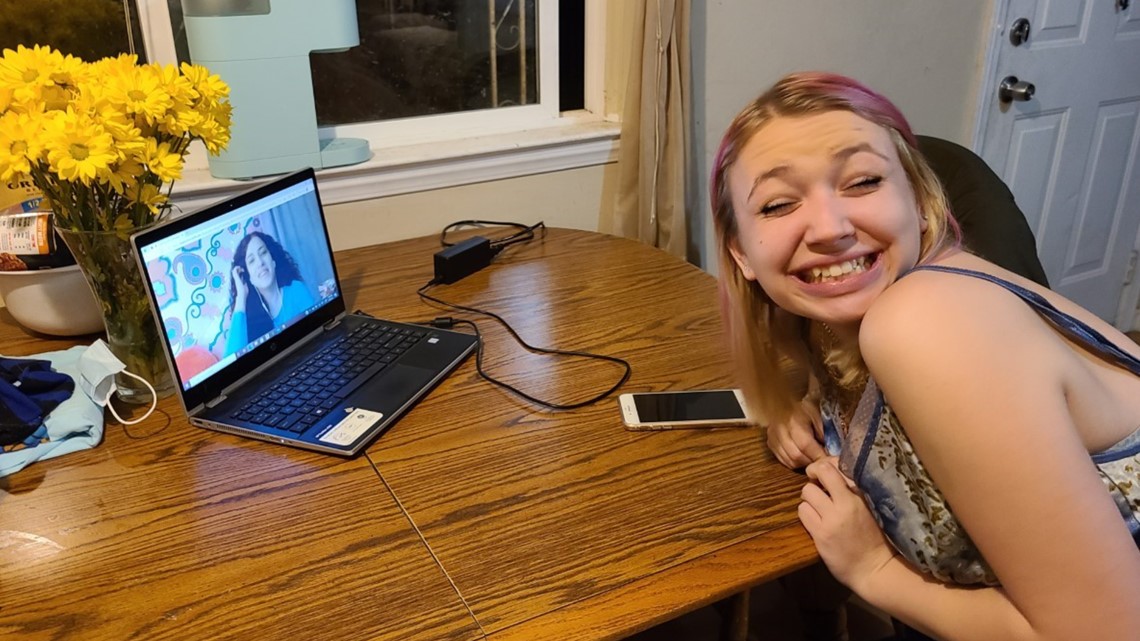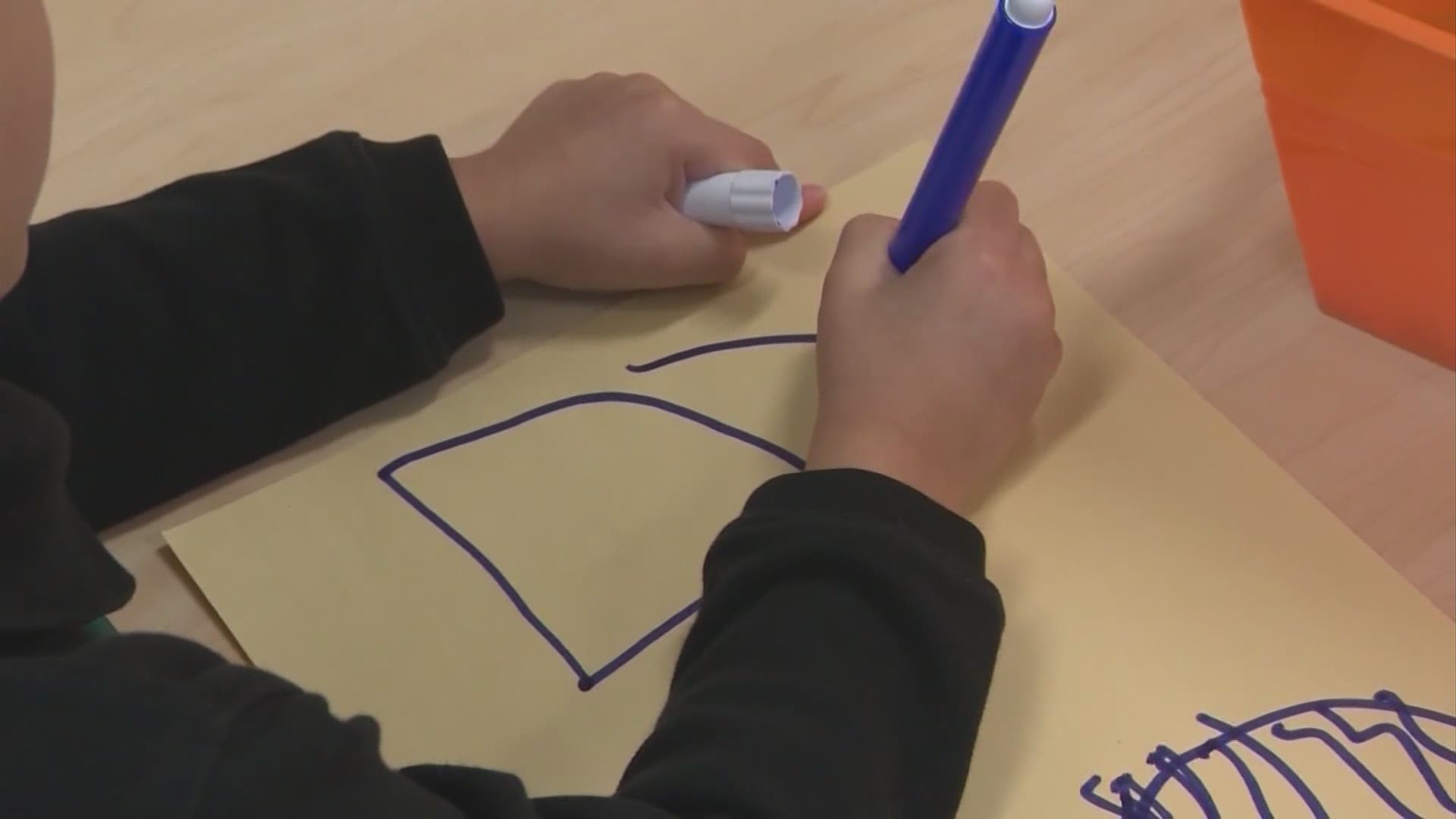The COVID-19 pandemic is shining light on the importance of mental health, especially in children.
Experts estimate one in five children in the United States experience a mental disorder in a given year. During the pandemic, the CDC reports more children are going to the emergency department for mental health concerns, specifically ages five to 11 saw a 24% increase and ages 12-17 saw a 31% jump from 2019.
Dr. Parker Huston is the clinical director of Nationwide Children's Hospital's "On Our Sleeves" program.
"It started as a movement to increase awareness and destigmatize conversations around children's mental health, but really it's grown into a national program with the aim of providing resources and education, for not only breaking stigmas but improving mental wellness practices," Huston said.
Huston said the pandemic has been especially challenging for children because of the drastic change in routine.
"'Where am I going today? What do I have to prepare for today? What should I expect from my boss, from my school, from my child, from my friend?' What's happened to all of us is those habits, those routines, have been upended almost wholesale," he said.
Elizabeth Boyden is a mother of four in Upper Arlington. She posted to her page "Columbus Stories" about an interaction she had with her nine-year-old daughter.
"My oldest is social. She loves her friends. She loves being at school. She loves hugging people. This was really hard for her. She kept asking, 'When is this going to go away? When is this going to stop?' You know, you don't have an answer for them," she said. "I think it was back early December [she] was like, 'I hate school. I don't want to do it anymore.' This is someone who loved school. Also, she's our good eater. She loves eating anything from broccoli, salmon and she said, 'I don't feel like eating anymore.' I don't think she understood what that really meant to feel depressed, anxious, to have those feelings and we just knew it was time to try to live a somewhat normal life."
Boyden and her family decided to take a trip. She knew people would have opinions, but thought it was important to be transparent about their struggles.


Kylie Evoy, 16, lives in Grove City. Last April, she started residential treatment at The Buckeye Ranch, getting help for both behavioral and mental health challenges.
"I was so depressed. I didn't want to get out of my bed," Evoy said. "[My therapist] would help me and tell me, 'If you ever feel a certain way, you need to tell us,' and I did because I constantly felt like what's the point of this? I'm never going to get out and if I do get out, what's the point? There's not going to be anything to do."


Kam Twymon serves as Buckeye Ranch's Vice President of Community-based and Education Services. She said unfortunately, these stories are not unique.
"We're seeing an increase in mental health concerns. Anecdotally we're hearing that, and the data supports it," Twymon said. "Children are seeing what's going on. They may have either their peers, adults, or someone else that's close to them who have experience COVID or may have died from COVID, so they're navigating that as well."
Experts shared with 10TV some signs adults should look for that a child may be struggling, including:
- Changes in personality
- Changes in interests
- Changes in sleeping and eating habits
- Changes in development (Example: They were doing well with toilet training, but suddenly they went back a few steps)
If you notice these changes, it is a sign it's time for a conversation. However, you shouldn't wait until there is a problem.
"The reality is no matter if we talk about it or not, children are going to develop mental health concerns, they're going to have mental health diagnoses, and they need support," Huston said.
Here are some good conversation starters:
- How are you?
- What's the best part of your week? What's been the hardest part?
- How did you feel when you got that grade on your test?
- How did you feel when your friend didn't want to play or couldn't come over?
Huston said you can also set the example for young people in your life by talking about how you're feeling.
"I've had plenty of opportunity myself over the past 12 months [saying], 'I'm not feeling well today. I'm feeling really stressed out today. I'm feeling really sad or I'm feeling really worried about something that is happening ... and here's how I'm going to deal with it," he said.
Twymon added, "Making it a normal process where we are just checking in around mental health, normalizing that language and doing some emotional check-ins."
While telemedicine has taken off during the pandemic, there is still a gap in access to resources. Experts hope the health care industry will continue to innovate past the pandemic and find ways to reach vulnerable populations.
"We have one child psychiatrist for every 15,000 children. If you think of the statistics of how many people potentially need those type of services, it's a greatly over-burdened system right now," Huston said.
Kylie Evoy is now home with her family and is utilizing telemedicine. Her mother, a busy nurse, said it has benefited their family.
"I think one of the benefits to us bringing awareness and normalizing this is resources are more available," said Ashley Evoy, Kylie's mom. "There are so many programs out there. People willing to help, but because it's not completely normalized, it's not like you're seeing pediatric psychiatry on the corner next to CVS."
Elizabeth Boyden said her family has also explored the resources available.
"It's OK to ask for help right now because it's a tough time," Boyden said. "We're seeing the benefits to our family."
To read about some of the mental health resources available, you can use the On Our Sleeves resource map or browse the programs available through an organization such as The Buckeye Ranch.
If you or your child need immediate help due to having suicidal thoughts, go to your local emergency room immediately, call the Nationwide Suicide Prevention Lifeline at 1-800-273-TALK (8255) or you can reach the Crisis Text Line by texting "START" to 741-741.

